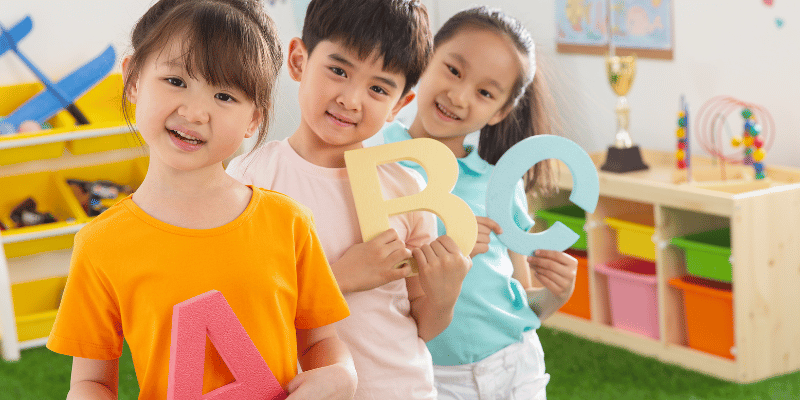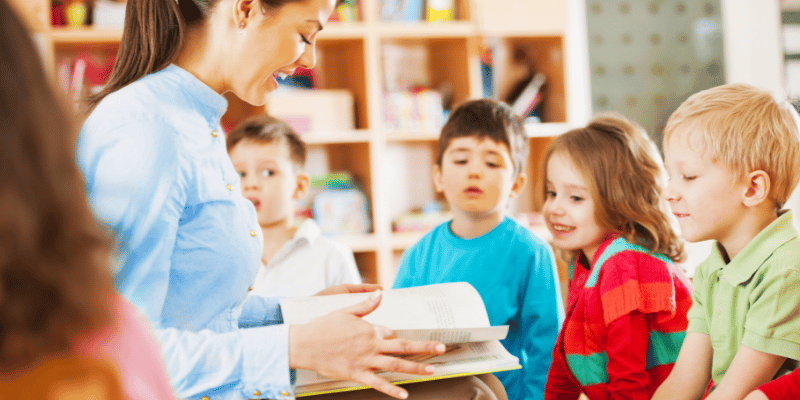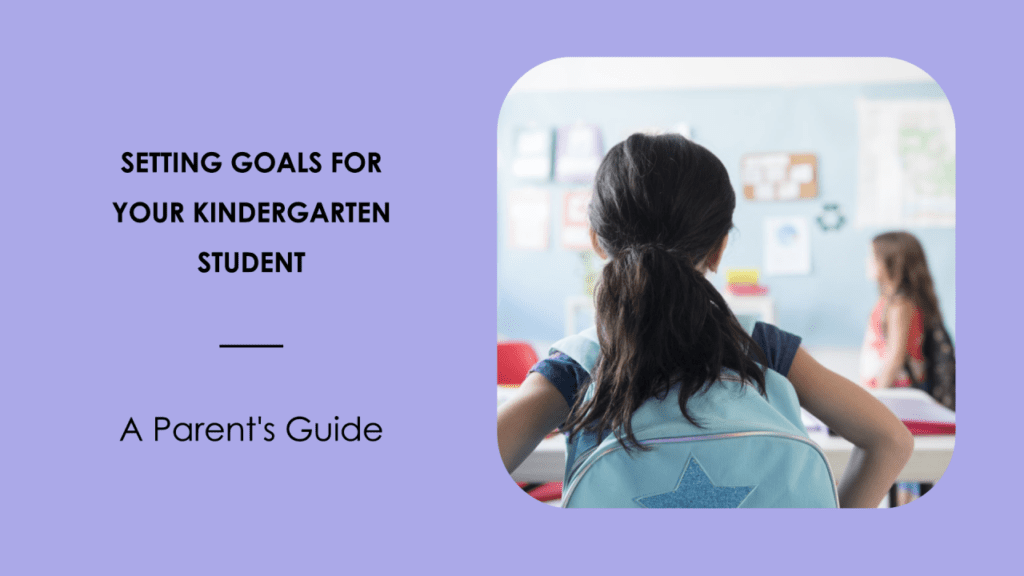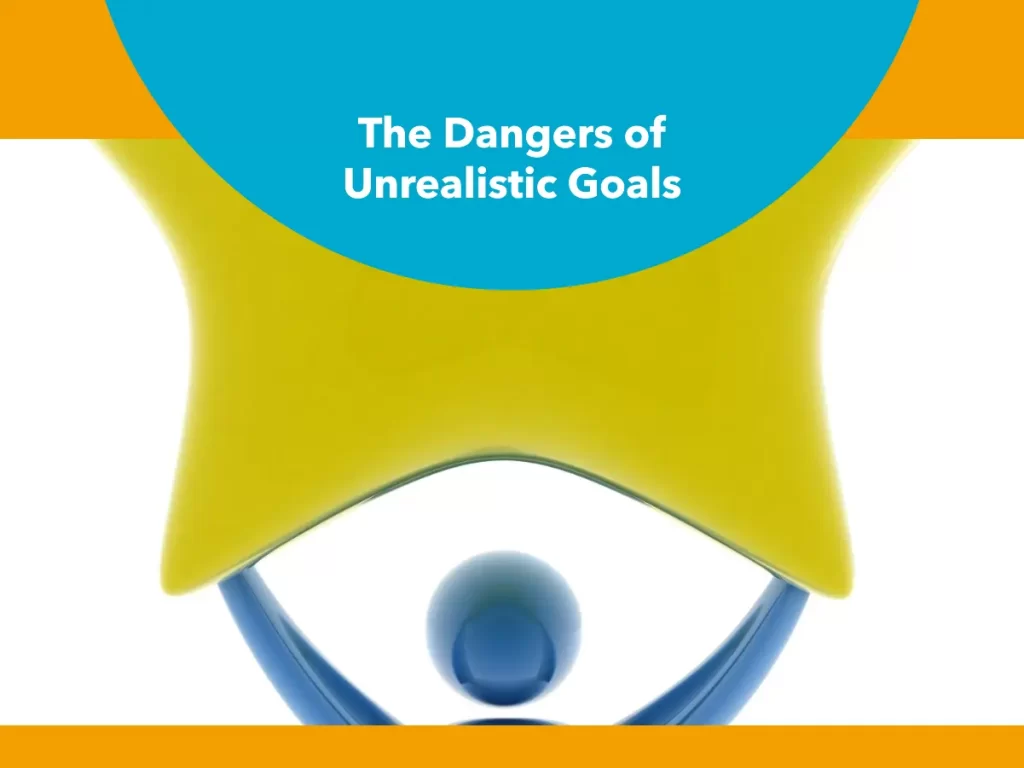During early childhood, the beginning of kindergarten education is a very critical time for children, parents, and teachers. Early childhood education tends to focus on the development of the behavior of your kids that improves their learning ability. Kindergarten is preschool education developing skills in children to prepare them for first grade.

The idea of kindergarten works perfectly for kids at early ages learning sounds, sight words, spoken words, simple sentences, listening to stories, drawing, counting, and listening to their teachers and parents. Kindergarten students love to explore different skills like singing, dancing, reading, writing, and developing healthy relationships with group children.
Like other ages, a kindergarten student also needs some academic goals too for learning skills.
Goals for kindergarten students

I have prepared a list of goals for kindergarten students including reading skills, writing skills, math skills, speaking and listening skills, science skills, and language art skills. You can print them out or can change them according to the interest of your students.
Here you can enjoy some of the kindergarten goals to develop learning behavior in your students and kids.
Kindergarten Reading Goals

Here are some of the reading goals for your child to develop a learning behavior and prepare them for first grade.
Phonics
- I can recognize all the letters of the alphabet
- I can recognize upper-case and lower-case letters
- I can make sounds of each alphabet
- I can practice the beginning, middle, and end sounds of syllable words
- I can match the letters with their sounds
- I will make new words with the sounds of the letters of the alphabet in my first grade
Fluency
- I can read my kindergarten books
- I will read the first-grade books too
- I can read the content list of my kindergarten books
- I can help the reader to read the kindergarten list of sight words.
- I can read my lessons loudly in the classroom
- I can recognize the mistakes of readers in the classroom
Vocabulary
- I can remember the meanings of words in my kindergarten English book
- I can check the spelling mistakes
- I can put the missing alphabet to make letters
Connection
- I can tell the difference between the two stories
- I can tell the relationship between the two stories
- I can identify the relationship between the alphabet and letters
Kindergarten writing goals
Help your students and children to practice the following writing goals.
- I know how to start simple sentences
- I can check the mistakes in my writing
- I can start the first word of the sentence with a capital
- I can write my name without making spelling mistakes
- I can recognize my spelling mistakes
- I can match the letter “c” with the cat image
- I can write the difference between the two stories
Kindergarten speaking and listening goals
Post the following speaking and listening goals in your classroom.
- I love listening to my teachers in the classroom and my parents at home
- I listen and follow the directions provided by my teachers and parents
- I listen to my families
- I listen without interrupting other students
- I can share a problem with my teacher and parents
- I can speak louder while reading in the classroom
- I know the sounds of spoken words
- I can share jokes in the classroom with my fellow students
Kindergarten Math Curriculum
Following math goals will develop problem-solving skills in your child.
- I can make counting till 100
- I can perform basic addition in my math test
- I can perform basic concepts of sums in my math test
- I can differentiate the patterns in my math test
- I can make new numbers in my first grade
- I am good at concepts of less and more
- I can recognize different numbers by using concepts of less and more
Kindergarten Language Arts Curriculum
- I can identify sight words in a text
- I am aware of the different sounds of words and letters
- I can identify the relationship between letters to words
- I am aware of the relationship between words to simple sentences
- I know how to make simple letters with alphabets
- I can recognize the missing alphabet from my name
- I know “c” stands for cat
Kindergarten science goals
- I can make a difference between living and non-living objects
- I can make a list of all the living objects around me
- I can prepare a list of all the non-living objects in my classroom
- I can recognize energy sources in my environment
- I can list the objects providing heat energy
- I can identify the different sounds
- I can make a difference between day and night
Setting Kindergarten Goals in an Easy Way

Creating effective kindergarten goals is necessary for the development of your students and children. your kids need academic goals that focus on the nature and learning behavior of the child.
Making the goals simple and achievable can be effective to convey the idea of written words. While setting kindergarten goals for your child’s mind these points are given below.
Allow children to choose their goals
Allow your kids to choose a goal of their interest. Provide them with resources that relate to their interests and nature. It will help your child in the development of clear concepts of the object.
Talk to your child about the purpose of the goal
Always make sure to count the purpose of the goal. Your children will show interest in things that are easy and clear to understand. So, telling them the purpose of the very goal helps them activate toward the task.
Break down goals
When your students or children seem to ignore things, review their progress and identify the problem. Sometimes setting big goals cause a lack of interest. So, if your child is feeling difficulty reading letters tell him to read the alphabet only.
Breaking the task encourages students to participate actively.
Posting goals
Use colorful and attractive Post notes to post the goals in the center of the class or on the corner of the whiteboard. Colors have always proven to be attractive for kids. Allow your kids to add one letter on the post board.
It will be a fun activity for your kids and an easy way to encounter their goals.
Identify potential obstacles
Help your child to identify the obstacles in the way to learning. They can be some poor habits in your child, lack of confidence, shyness, and emotional weakness.
What 3 goals you have set for your kindergarten child?

- Improve grades in math this month: learn patterns, counting, write concepts of sums, draw the geometrical shapes, write questions about sums, write and learn tables, and the intervention of numbers.
- Improve language arts: learn grammar, alphabet, phonics, arrangement of alphabets, use of letters in simple sentences, and concepts of sounds of letters.
- Learn the safety signs: identify the fire sign, exit sign, entrance sign, warning sign, stop sign, and emergency sign.
What is my goal for my child at kindergarten?
I have to focus on the reading skills of my child at kindergarten to prepare him for the first grade. I will help him to improve his grades in first grade.
More kindergarten
You can consult good kindergarten programs to acknowledge the concepts of kindergarten. These programs include the goals for your child that help him learn cognitive skills. There are many other concepts related to kindergarten that can be fun to learn to help your child’s learning development i.e,
- Kindergarten core reading and math data evaluation
- Some easy tools for teaching
- Tracking the progress of your kindergarten child
Conclusion
Early childhood consists of many development stages in your child and requires the total intention of parents and teachers. Quality parental care is necessary for the growth of your child at this stage.
To enhance the cognitive ability of your child and student it is important to set goals for kindergarten students. By setting impactful goals and considering the nature and interests of your child you can make the process easy.
FAQ’S
What should goals for kindergarten be?
Before setting, goals for kindergarten go through the good kindergarten programs and chose the program that fits best in your child’s situation.
Select the kindergarten program that provides opportunities to learn and practice, social skills, and emotional development, and enhance the cognitive ability of your child.
How do you write a kindergarten goal?
The following steps can help you write effective kindergarten goals for your child
- Write a colorful title of the goal o top of the page
- Draw colorful images according to the concept
- Lable the images
- Make clear points
- Create a response box at the bottom of the page
What are your goals for your child?
- Improve math grades
- Develop learning skills with fun activities
- Help my child in story reading to enhance his reading skills
- Help my kindergarten child in spell learning
- Allow him to write words and letters to develop writing skills
What are the 5 learning goals?
Some of the effective learning goals are listed below for your child’s academic development.
- Develop speaking skills
- Improve math concepts i.e., concepts of sums
- Count 1 to 100
- Listen to your teacher
- Raise your hand in the classroom
What are 5-year goals and objectives?
Your five-year-old needs the following goals to achieve.
- Count 5 living objects around you
- Identify the starting letter of a word
- Eat your breakfast daily
- Put your lunch box in your bag
- Write your name on the page
What is a goal in early childhood education?
Early childhood is beneficial to develop cognitive interest and social skills in your child. One of the early childhood educational goals is
- Develop good relationships with your teachers and other students.



